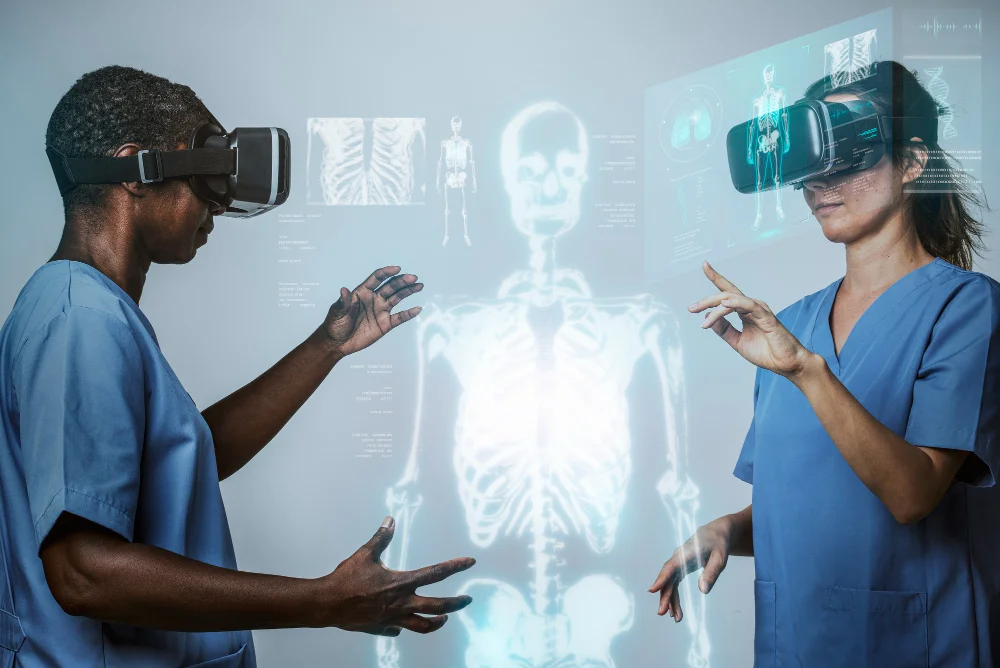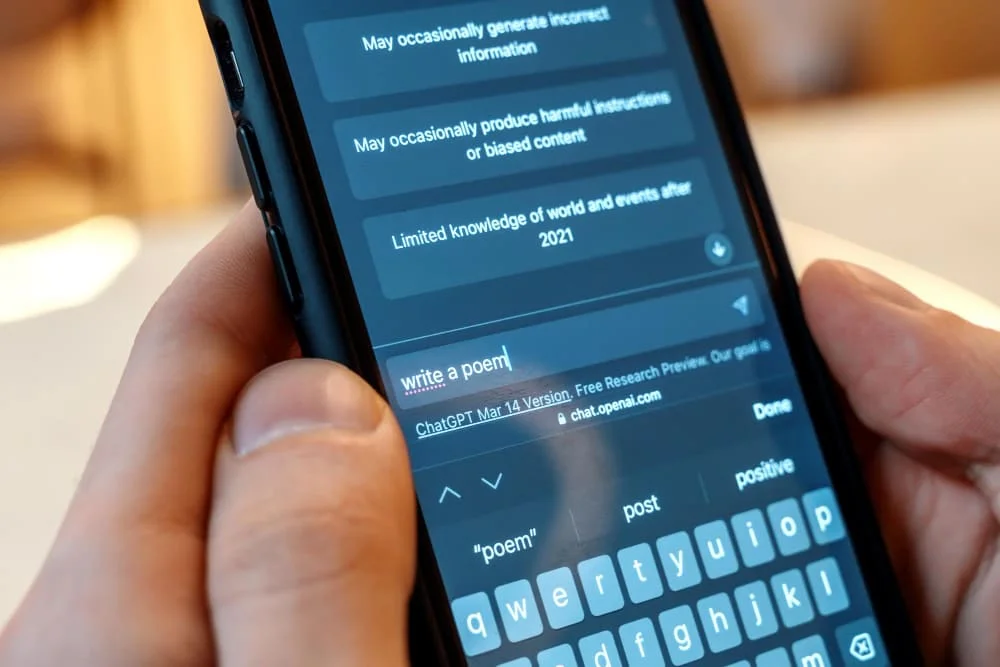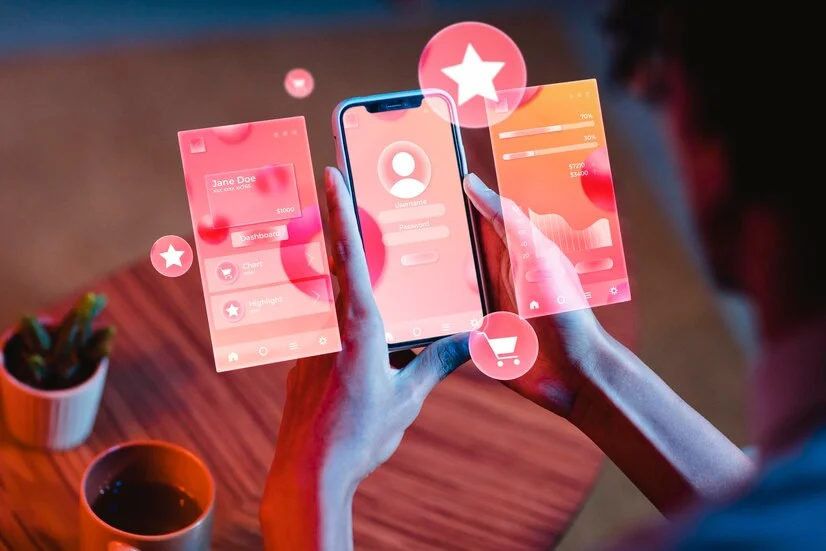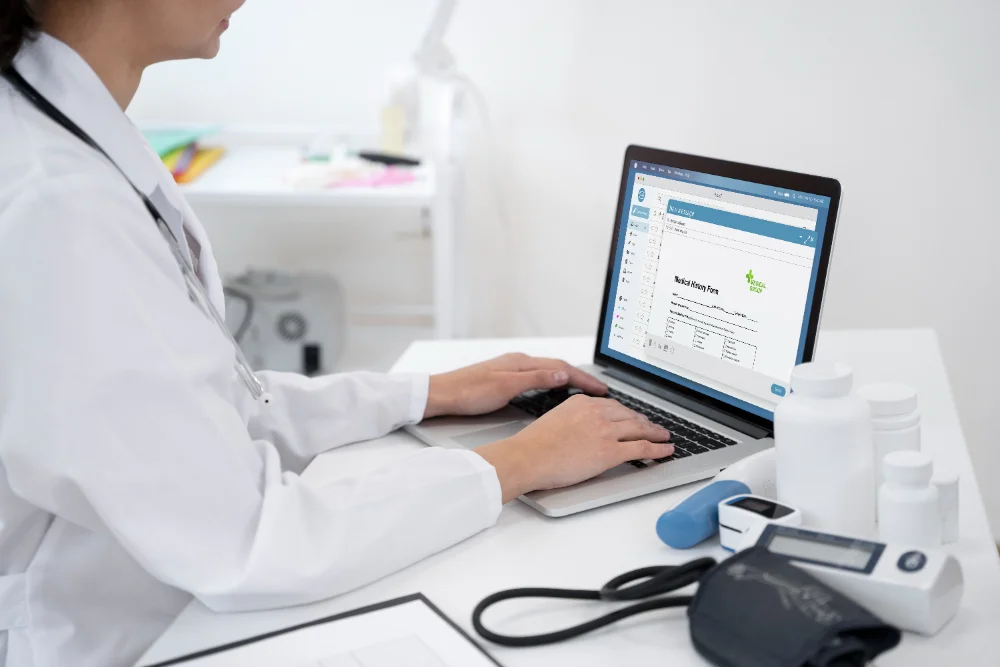In today’s digital era, healthcare mobile apps are revolutionizing the medical landscape, empowering patients and healthcare providers alike. With the rapid advancements in technology and a growing focus on patient-centric care, the demand for healthcare apps has soared in recent years. From enabling virtual consultations to streamlining medical records and improving patient engagement, these applications are transforming how healthcare services are delivered. As a result, they are reshaping the industry, making it more efficient, accessible, personalized and Healthcare mobile app development is revolutionizing the way patients and healthcare providers interact, improving patient care, increasing efficiency, and enabling better management of healthcare services.
For healthcare providers, mobile apps present an opportunity to optimize operational processes, reduce administrative burdens, and enhance patient care. Patients, on the other hand, benefit from greater convenience, improved communication, and real-time access to essential health information. A survey suggests, with over 64% of patients preferring to use mobile healthcare apps to manage their medical needs, the importance of such apps cannot be understated. The global healthcare app market has been growing exponentially, and its value is projected to surpass $500 billion by 2027. Businesses that invest in healthcare app development today stand to gain a competitive edge in the fast-evolving healthcare sector.
However, building a healthcare mobile app comes with its unique challenges. The industry is highly regulated, requiring strict adherence to compliance standards like HIPAA (Health Insurance Portability and Accountability Act) in the USA or GDPR (General Data Protection Regulation) in Europe. Moreover, the success of a healthcare app depends on its ability to address specific needs, ensure data security, and deliver a seamless user experience. Whether you’re developing a telemedicine platform, a fitness tracker, or a comprehensive healthcare management app, understanding the nuances of the development process is critical to its success.
This comprehensive guide aims to explore every aspect of healthcare mobile app development. From understanding the types of healthcare apps available to discussing the key features, cost considerations, and development timeline, we’ll cover everything you need to know to bring your healthcare app idea to life. We’ll also delve into the latest trends in the healthcare app industry, such as the integration of Artificial Intelligence (AI), Machine Learning (ML), and Internet of Things (IoT) for enhanced functionality and user experience.
Cenozic, a leading technology solutions provider, has extensive experience in developing cutting-edge healthcare mobile apps that meet industry standards and deliver exceptional value. Whether it’s designing an intuitive user interface, integrating advanced technologies, or ensuring compliance with regulatory requirements, our team is well-equipped to handle the complexities of healthcare app development.
In the sections ahead, we’ll take a closer look at the critical aspects of healthcare mobile app development, including:
- Different types of healthcare apps and their purposes.
- Essential features required for a successful healthcare app.
- Estimating the Cost of Healthcare App Development.
- Key Factors Influencing Healthcare App Development Cost.
- Emerging trends and technologies driving the industry forward.
- Why Choose Cenozic for Healthcare App Development.
These sections will provide actionable insights to help you understand the development journey and create a robust app tailored to your goals and audience. Whether you’re a healthcare provider, startup, or entrepreneur looking to enter the healthcare tech space, this guide will provide you with the knowledge and insights needed to navigate the development journey successfully. With Cenozic by your side, you can create a robust, secure, and user-friendly healthcare app that drives value and innovation in the industry. Let’s dive deeper into the world of healthcare software development and uncover the possibilities that lie ahead!
Different Types of Healthcare Apps and Their Purposes
The healthcare industry is undergoing a digital revolution, with mobile applications playing a central role in improving patient outcomes, streamlining healthcare processes, and enhancing communication between providers and patients. Healthcare apps cater to a wide range of needs, from managing chronic diseases and promoting wellness to improving hospital operations and delivering remote care. Healthcare mobile app development is a transformative step toward modernizing the healthcare industry. It not only offers a competitive advantage for businesses but also empowers patients to take charge of their health and well-being.

By offering personalized solutions, these apps empower users to take charge of their health while helping healthcare providers deliver more efficient and effective services. Below, we explore the different types of healthcare apps, categorized based on their purposes, and discuss how they benefit users and the industry as a whole :
1. Telemedicine Apps
Purpose: To connect patients and healthcare providers for virtual consultations.
Telemedicine apps have transformed the way medical care is delivered. These apps enable patients to consult doctors remotely via video calls, voice calls, or chat. This is especially beneficial for those living in remote areas with limited access to healthcare facilities or for patients requiring quick consultations.
Key Features of Telemedicine Apps:
- Video and audio conferencing.
- Appointment scheduling.
- Prescription management.
- Patient records storage and sharing.
- Secure payment gateways for consultations.
Benefits:
- Reduces the need for in-person visits, saving time and resources.
- Offers convenient access to healthcare for patients with mobility issues or in remote areas.
- Minimizes exposure to infections, especially in the context of pandemics.
Example: Apps like Teladoc and Amwell allow patients to consult with certified doctors and get prescriptions without visiting a clinic.
2. Fitness and Wellness Apps
Purpose: To promote a healthy lifestyle by tracking physical activity, diet, and mental well-being.
Fitness and wellness apps focus on preventive healthcare by helping users maintain a healthy lifestyle. These apps often integrate with wearable devices to track fitness metrics like steps taken, calories burned, and heart rate. Some apps also focus on mental well-being through guided meditation, breathing exercises, and stress management tools.
Key Features of Fitness and Wellness Apps:
- Activity and workout tracking.
- Calorie counters and meal planners.
- Goal-setting and progress tracking.
- Integration with wearables and IoT devices.
- Mental health resources like meditation guides.
Benefits:
- Encourages users to adopt healthier habits.
- Provides real-time data for self-improvement.
- Supports stress management and mental health.
Example: MyFitnessPal, Fitbit, and Headspace are popular apps in this category, helping users stay fit and manage stress effectively.
3. Chronic Disease Management Apps
Purpose: To help patients monitor and manage chronic health conditions such as diabetes, hypertension, or asthma.
Chronic disease management apps empower patients to monitor their conditions and maintain adherence to treatment plans. These apps often include reminders for medications, tracking tools for symptoms, and educational resources to help users understand their condition better.
Key Features of Chronic Disease Management Apps:
- Symptom and vitals tracking (e.g., blood glucose, blood pressure).
- Medication reminders.
- Educational content about the condition.
- Integration with medical devices like glucometers.
- Communication with healthcare providers.
Benefits:
- Helps patients stay on top of their treatment plans.
- Provides early warnings for potential complications.
- Enhances patient-doctor communication.
Example: Apps like mySugr for diabetes management and CareClinic for multiple chronic conditions offer tailored solutions for users.
4. Women’s Health Apps
Purpose: To address specific health needs related to menstruation, pregnancy, and reproductive health.
Women’s health apps cater to unique requirements, such as tracking menstrual cycles, managing pregnancy health, and providing fertility insights. These apps are designed to empower women with knowledge and tools to make informed health decisions.
Key Features of Women’s Health Apps:
- Menstrual cycle and ovulation tracking.
- Pregnancy health monitoring.
- Fertility calculators and guides.
- Educational resources on women’s health.
- Personalized notifications and reminders.
Benefits:
- Helps women track and understand their reproductive health.
- Provides timely reminders for medication or prenatal care.
- Supports better family planning and fertility management.
Example: Flo and Clue are popular apps offering detailed insights into menstrual and reproductive health.
5. Hospital Management Apps
Purpose: To streamline hospital operations and improve patient care.
Hospital management apps are designed for healthcare facilities to optimize workflows, manage patient records, and improve overall efficiency. These apps integrate various departments within a hospital, enabling seamless communication and coordination.
Key Features of Hospital Management Apps:
- Electronic health records (EHR) management.
- Appointment scheduling and patient registration.
- Inventory and billing management.
- Staff management and shift planning.
- Real-time data analytics for decision-making.
Benefits:
- Reduces administrative burdens.
- Improves patient satisfaction through streamlined processes.
- Enhances resource management and cost efficiency.
Example: Practo Ray and Insta by Practo are hospital management solutions catering to the needs of healthcare providers.
6. Pharmacy and Medication Management Apps
Purpose: To simplify prescription management and provide convenient access to medications.
Pharmacy apps help users order medications online, track prescriptions, and set reminders for taking pills. They also provide valuable information on drug interactions and side effects, ensuring safe usage.
Key Features of Pharmacy Apps:
- Online medication ordering and delivery tracking.
- Prescription uploads and refills.
- Pill reminders and dosage tracking.
- Drug interaction alerts.
- Discounts and loyalty programs.
Benefits:
- Provides convenience for users to manage medications.
- Reduces the risk of missed doses or medication errors.
- Offers easy access to essential drugs, even in remote areas.
Example: Apps like 1mg and Medlife make medication management hassle-free for users.
7. IoT-Enabled Healthcare Apps
Purpose: To provide real-time health monitoring using Internet of Things (IoT) devices.
IoT-enabled healthcare apps work in conjunction with wearable devices and sensors to collect and analyze health data. These apps are instrumental in preventive healthcare and chronic disease management.
Key Features of IoT-Enabled Healthcare Apps:
- Integration with wearable devices (e.g., fitness bands, smartwatches).
- Real-time data collection and analysis.
- Alerts for abnormal health readings.
- Data sharing with healthcare providers.
- Remote patient monitoring capabilities.
Benefits:
- Promotes early detection of health issues.
- Enhances personalized care through data insights.
- Enables continuous monitoring for high-risk patients.
Example: Apps like Apple Health and Samsung Health integrate seamlessly with IoT devices to provide comprehensive health insights.
The diversity of healthcare apps highlights the immense potential of mobile technology in addressing complex healthcare challenges. Each type of app serves a specific purpose, whether it’s improving access to care, promoting wellness, managing chronic diseases, or streamlining hospital operations.
At Cenozic, we specialize in developing healthcare applications tailored to meet the unique needs of our clients. Whether you’re looking to create a telemedicine platform, a fitness tracker, or a hospital management solution, our team of experts ensures that your app is user-friendly, secure, and compliant with industry regulations.
Essential Features Required for Healthcare App
Healthcare mobile applications are transforming the healthcare industry by improving access, enhancing patient engagement, and streamlining processes for healthcare providers. A well-designed healthcare app not only makes it easier for users to manage their health but also delivers an intuitive and secure experience. However, the success of a healthcare app depends on the features it offers, as they determine its usability, reliability, and effectiveness in addressing user needs.

Whether you’re developing a telemedicine app, a fitness tracker, or a chronic disease management solution, including the right set of features is essential to attract users and meet their expectations. In this blog, we’ll explore the essential features required to create a successful healthcare app that resonates with both patients and healthcare providers.
1. User-Friendly Interface and Design
Why It’s Important:
A healthcare app must feature a straightforward and intuitive interface that caters to users of varying age groups and technical skills. This design should prioritize ease of use, allowing individuals to navigate effortlessly through its features and functions. By incorporating clear visual elements and logical layouts, the app can provide a seamless experience for everyone, from tech-savvy young adults to seniors who may be less familiar with digital technology. Ultimately, the goal is to create an accessible platform that encourages all users to engage with their health and wellness easily.
Key Aspects to Consider:
- Clean and uncluttered layout for better readability.
- Clear call-to-action buttons for critical functions like scheduling appointments, accessing health records, or contacting a doctor.
- Responsive design to ensure compatibility across devices and platforms.
- Accessibility features, such as larger fonts, voice commands, and support for users with disabilities.
How It Helps:
A well-designed UI/UX ensures users can navigate the app effortlessly, making their experience more enjoyable and increasing app retention rates.
2. User Registration and Profile Management
Why It’s Important:
User registration serves as the crucial starting point for any application. It empowers users to create and customize their personal profiles, which act as secure repositories for their health data, preferences, and medical history. This functionality is essential for ensuring that each user’s information is organized and easily accessible, allowing for a tailored experience that meets their individual health needs and preferences. Through effective user registration, individuals can confidently manage their information, contributing to a more personalized and efficient user experience.
Key Aspects to Include:
- Quick sign-up options via email, phone number, or social media accounts.
- Detailed user profiles for patients and doctors with information like medical history, age, gender, and preferences.
- Secure access through two-factor authentication (2FA) or biometric logins like fingerprint or facial recognition.
How It Helps:
With personalized profiles, users can view their medical history and treatment plans, while healthcare providers can offer tailored services based on the stored data.
3. Appointment Scheduling and Reminders
Why It’s Important:
One of the essential features of a healthcare app is the ability to schedule appointments seamlessly. This functionality should be designed to simplify the process for users, allowing them to effortlessly browse through available time slots. It should enable them to quickly and efficiently book appointments with their preferred healthcare providers, ensuring a smooth and user-friendly experience. This feature not only enhances accessibility to medical services but also helps users stay organized and informed about their healthcare needs.
Key Aspects to Include:
- Real-time availability of doctors or specialists.
- Calendar view for easy date selection.
- Notifications and reminders for upcoming appointments.
- Integration with telemedicine for virtual consultations.
How It Helps:
Streamlined appointment scheduling saves users time, improves patient satisfaction, and reduces missed appointments for healthcare providers.
4. Telemedicine and Virtual Consultations
Why It’s Important:
Telemedicine has emerged as a pivotal element in contemporary healthcare, revolutionizing the way patients interact with their medical providers. By leveraging technology, individuals can now engage in consultations with doctors from the comfort of their own homes, effectively bridging the gap created by geographical barriers. This innovative approach is especially beneficial for patients residing in rural or underserved regions, where access to healthcare services may be limited.
Key Aspects to Include:
- Video and audio conferencing for virtual consultations.
- Secure in-app messaging for doctor-patient communication.
- Prescription generation and sharing.
- HIPAA-compliant data handling for secure communication.
How It Helps:
Telemedicine improves accessibility to healthcare, reduces the burden on hospitals, and ensures that patients can seek medical advice without leaving their homes.
5. Health Tracking and Monitoring
Why It’s Important:
Health tracking plays a pivotal role in empowering users to take control of their well-being by enabling them to monitor their vital signs, daily activities, and symptoms in real time. With the integration of advanced technologies like wearable devices and mobile sensors, users can seamlessly track critical health parameters such as heart rate, blood pressure, oxygen levels, sleep patterns, and physical activity levels. This continuous monitoring provides valuable insights into their overall health, helping them identify irregularities or early warning signs of potential health issues.
Key Aspects to Include:
- Integration with wearable devices to track parameters like heart rate, blood pressure, and oxygen levels.
- Symptom trackers for chronic disease management.
- Daily, weekly, and monthly health reports for progress tracking.
- Alerts for abnormal readings or emergencies.
How It Helps:
Users can take proactive measures to manage their health, while doctors can use the data for better diagnosis and treatment planning.
Developing a successful healthcare app requires a clear understanding of user needs and the inclusion of essential features that address those needs effectively. Features like a user-friendly interface, telemedicine capabilities, EHR integration, and secure payment systems not only enhance usability but also ensure compliance with industry regulations.
Estimating the Cost of Healthcare App Development
At Cenozic, we provide tailored healthcare app development services that meet the specific needs of your business. The cost of healthcare app development in USA depends on the scope of the project, including the complexity of the features and the timeline for delivery. When developing a healthcare app, the cost can vary significantly depending on the features, complexity, and scope of the project.

As healthcare apps are often highly regulated, involve complex integrations, and deal with sensitive patient data, the development process requires a strategic approach. Here’s a more detailed breakdown of the costs involved in developing a healthcare app with Cenozic, from the initial concept to the final deployment:
1. Basic Healthcare App Development
Price Range: $10,000 – $30,000
Scope: A basic healthcare app typically involves simple functionalities such as appointment scheduling, patient reminders, or basic health tracking. These apps are designed with a minimalist approach to serve a specific purpose, often for individual users or small clinics. Basic healthcare apps might not require complex back-end systems or third-party integrations.
Features:
- UI/UX Design: A simple, user-friendly interface designed to cater to the needs of patients or healthcare providers.
- Basic Appointment Scheduling: A feature allowing patients to schedule, cancel, or reschedule appointments.
- Health Tracking: Simple tracking of basic metrics like weight, blood pressure, or medication adherence.
- Push Notifications: To remind patients about upcoming appointments, medication schedules, or important health tips.
- Basic Data Security: A basic level of encryption and data protection, although not as robust as in more advanced applications.
While these apps provide a good starting point, they typically lack features like video consultations or EHR integration. The backend is often less complex, and data is usually stored on local servers or minimal cloud-based systems.
2. Moderately Complex Healthcare App Development
Price Range: $30,000 – $60,000
Scope: A moderately complex healthcare app usually includes multiple features such as telemedicine functionalities, integration with third-party platforms (like wearables or EHR systems), and real-time communication tools. These apps require more advanced architecture and integration of secure communication protocols to ensure privacy and regulatory compliance (such as HIPAA in the U.S.).
Features:
- Telemedicine/Video Consultations: Allows healthcare providers and patients to interact in real time via secure video calls. This feature requires integration with a reliable video conferencing platform like WebRTC, Zoom, or other HIPAA-compliant services.
- Patient Records Integration: Integration with Electronic Health Records (EHR) to ensure seamless access to patient data. EHR integration adds complexity to the backend of the app but is crucial for healthcare providers managing patient history and prescriptions.
- Data Encryption & Security: Advanced security measures such as AES-256 encryption, SSL/TLS protocols, and multi-factor authentication to meet HIPAA and GDPR requirements.
- Real-Time Messaging: Chat functionality for direct communication between healthcare professionals and patients.
- Health Device Integration: The app could sync data from wearables like fitness trackers, glucose monitors, or heart rate monitors to provide a holistic view of a patient’s health.
- Appointment Scheduling & Reminders: More sophisticated scheduling, including calendar syncing, multi-location support, and real-time availability checks.
These features are typically aimed at clinics, telemedicine startups, or small healthcare organizations that require robust functionalities but don’t yet need full-scale enterprise systems.
3. Advanced Healthcare App Development
Price Range: $60,000 – $150,000+
Scope: Advanced healthcare apps are typically designed for large healthcare institutions or telemedicine platforms requiring high levels of integration, scalability, and complex features like AI-powered diagnostics, predictive analytics, and custom EHR/EMR systems. These apps are highly functional, involve multiple stakeholders (doctors, patients, admins), and require deep customization.
Features:
- AI-Powered Features: Integrating Artificial Intelligence (AI) for personalized treatment recommendations, predictive health analytics, or decision support systems. AI can be used to analyze large volumes of health data to help clinicians make more informed decisions.
- Advanced EHR/EMR Integration: Custom EHR and EMR systems that allow seamless data exchange between healthcare providers, patients, and insurance companies. Integration with existing hospital management software can be complex but is essential for efficient patient care.
- Patient Monitoring: Continuous patient monitoring through wearable devices, sensors, and mobile app integration. This may include real-time tracking of vital signs, medication usage, or recovery progress.
- Multi-Layer Security Protocols: The app requires advanced security mechanisms, including end-to-end encryption, advanced firewalls, and intrusion detection systems to safeguard sensitive healthcare data.
- Custom Backend Architecture: A sophisticated backend infrastructure that supports large amounts of patient data, real-time communication, and extensive reporting systems.
- Scalable Cloud Infrastructure: A cloud-based infrastructure that allows the app to scale with increasing users, hospital networks, and growing patient databases. This could involve utilizing AWS, Google Cloud, or Microsoft Azure for enhanced scalability and data redundancy.
- Real-Time Analytics and Reporting: Dashboards for healthcare providers and administrators to monitor key metrics, trends, and performance indicators related to patient care, operational efficiency, or financial performance.
- Compliance and Legal Features: Healthcare apps need to meet various compliance regulations, including HIPAA (Health Insurance Portability and Accountability Act) in the U.S., GDPR in Europe, and other national regulations. The development of a fully compliant app often requires ongoing legal review and additional security features to ensure data protection and privacy.
Given the scale and complexity, these apps often involve larger teams of developers, designers, and testers, with longer development timelines.
4. Additional Costs to Consider
In addition to the core development cost, there are several additional expenses to factor into the overall budget:
- Maintenance and Support: Healthcare apps require regular maintenance to stay secure, fix bugs, and add updates. Maintenance costs are typically 15-20% of the initial development cost per year. For example, if your app development cost is $100,000, maintenance might cost an additional $15,000–$20,000 annually.
- Regulatory Compliance: Depending on the country and region, your healthcare app will need to comply with various healthcare regulations such as HIPAA, FDA guidelines, GDPR, or local health laws. Ensuring your app meets these standards can add additional development and legal costs.
- Quality Assurance & Testing: Healthcare apps must undergo rigorous testing to ensure security, functionality, and usability. This can increase the time and cost of the project, especially for more complex apps.
- Design and Prototyping: High-quality UI/UX design is a critical part of healthcare app development, especially for patient-facing apps. Designing an intuitive, user-friendly interface requires skilled UX/UI designers, which will add to the overall cost.
Key Factors Affecting the Cost of Healthcare App Development
- App Type and Functionality
The type of healthcare app you want to develop is the most significant factor that impacts the cost. Healthcare apps generally fall into several categories, such as:
- Patient-Facing Apps: These apps allow patients to book appointments, access their health records, receive prescriptions, and communicate with healthcare providers. Examples include telemedicine apps and wellness apps.
- Doctor/Provider-Facing Apps: These apps cater to healthcare professionals, offering features like patient management, medical charting, and clinical decision support tools.
- Administrative Apps: Apps for managing healthcare operations, such as hospital management software and billing systems.
- Specialized Apps: Apps focused on specific needs like chronic disease management, mental health support, or fitness and wellness.
The more advanced and feature-rich your app is, the higher the development cost will be. Apps that require real-time data processing, AI-driven functionalities, and complex integrations with health systems (like EHRs) generally have higher costs.
- Platform Choice
Healthcare apps can be built for different platforms, including Android, iOS, or cross-platform solutions. Each platform has its own development requirements, and the choice of platform will influence the cost:
- Native App Development: Developing a healthcare app or MVP app for either Android or iOS as a native app tends to be more expensive, as it requires building two separate versions.
- Cross-Platform Development: Using tools like React Native or Flutter allows you to develop apps for both platforms at a lower cost. However, there might be trade-offs in performance and access to device-specific features.
The platform decision will depend on your target audience, the features required, and the budget available for development.
- Features and Functionalities
The features you want in your healthcare app will play a significant role in determining the overall cost. Some essential features for healthcare apps include:
- User Authentication: Secure login via multi-factor authentication or biometric verification.
- Real-Time Communication: Features like chat, video calls, and messaging between patients and healthcare providers.
- Health Data Integration: Integration with wearable devices, health tracking apps, and Electronic Health Records (EHR) systems.
- Appointment Scheduling: A calendar system for patients to book, reschedule, or cancel appointments with healthcare professionals.
- Push Notifications: Reminders for appointments, medication schedules, and follow-ups.
- Payment Gateway: Secure in-app payments for consultations, treatments, or prescription purchases.
- Compliance: Ensuring the app meets regulatory requirements like HIPAA in the U.S. or GDPR in the EU.
Each of these features requires specific development time, resources, and expertise, directly affecting the cost of the app.
- Development Team Expertise
The expertise and experience of your development team significantly impact both the cost and quality of the healthcare app. At Cenozic, we have a team of skilled professionals specializing in mobile app development, ensuring that the app complies with regulations and industry standards. Engaging a top-tier team like ours can lead to better user experience, robust security, and seamless integration with other healthcare systems, which are critical in healthcare app development.
- Design and User Experience (UX/UI)
In healthcare apps, user experience and design are crucial factors for success. A user-friendly and intuitive interface ensures that patients and healthcare providers can easily navigate the app, while a well-designed layout improves the overall experience. Designing healthcare apps with a focus on accessibility, simplicity, and functionality may require more investment but will ultimately lead to greater user satisfaction and engagement.
- Security and Compliance
Healthcare apps must comply with strict security and privacy standards to protect sensitive health data. At Cenozic, we implement robust security features, including data encryption, secure authentication, and regular vulnerability testing, to ensure your app is HIPAA-compliant and meets other industry-specific regulations.
Emerging Trends and Technologies Driving the Healthcare Industry
The healthcare industry is undergoing a major transformation, driven by the rapid development of new technologies and innovative solutions. These trends are not only improving patient care but also enhancing operational efficiency and reducing costs. From artificial intelligence (AI) and machine learning (ML) to telemedicine and blockchain, the healthcare sector is adopting cutting-edge technologies to address the evolving needs of patients, healthcare providers, and organizations. At Cenozic, we are at the forefront of these developments, helping healthcare businesses leverage these emerging trends to stay competitive and deliver exceptional results.
Artificial Intelligence and Machine Learning
AI and machine learning have made significant strides in the healthcare industry. These technologies are being used to enhance diagnostic accuracy, predict patient outcomes, and develop personalized treatment plans. AI-powered tools can analyze vast amounts of medical data in real-time, providing healthcare professionals with actionable insights that would be impossible to obtain manually. Machine learning algorithms and Artificial Intelligence technology are also playing a crucial role in drug discovery, clinical trials, and optimizing supply chain management within healthcare organizations.

Telemedicine and Remote Patient Monitoring
The COVID-19 pandemic accelerated the adoption of telemedicine and remote patient monitoring (RPM). Telemedicine allows healthcare providers to consult with patients virtually, removing barriers to access and reducing patient wait times. RPM technology enables healthcare professionals to monitor patients’ health remotely, using devices to track vital signs and chronic conditions. These technologies are improving patient outcomes by providing continuous care and reducing hospital readmissions.
Internet of Things (IoT)
The Internet of Things (IoT) is another game-changing technology in healthcare. Wearable devices, such as fitness trackers and smartwatches, collect data on patients’ health in real time. This data can be shared with healthcare providers, allowing for more accurate assessments and proactive care. IoT-enabled devices also play a significant role in managing chronic diseases by sending alerts and recommendations to patients and doctors.
Big Data and Predictive Analytics
Big data analytics is revolutionizing the healthcare industry by allowing organizations to process vast amounts of health data to identify trends, predict outbreaks, and improve patient outcomes. Predictive analytics uses historical data and machine learning algorithms to forecast potential health issues, helping healthcare providers take preventive measures. This data-driven approach enables more informed decision-making, reduces healthcare costs, and enhances the overall quality of care.
Robotics and Automation
Robotics and automation are increasingly being used in surgery, rehabilitation, and administrative tasks. Robotic-assisted surgeries offer precision, reduce the risk of human error, and speed up recovery times. In addition, automation tools are streamlining administrative tasks like scheduling, billing, and claims processing, allowing healthcare professionals to focus more on patient care.
Virtual Reality (VR) and Augmented Reality (AR)
Virtual and augmented reality technologies are enhancing medical training, patient education, and surgical planning. Surgeons are using AR and VR simulations to practice procedures before performing them on patients, improving accuracy and reducing risks. Additionally, VR is being used in pain management and mental health treatment, providing patients with immersive environments to ease anxiety and stress.
3D Printing in Healthcare
3D printing technology has opened new possibilities in healthcare, enabling the creation of custom prosthetics, implants, and even human tissues. This technology allows for more personalized treatments, faster recovery times, and reduced costs for patients. 3D printing is also being used in drug development and surgical planning, providing surgeons with accurate models of patients’ organs and tissues.
Cloud Computing
Cloud computing is becoming increasingly popular in healthcare for storing and sharing patient data securely. Cloud platforms provide healthcare organizations with scalable solutions for managing electronic health records (EHRs), improving collaboration among healthcare providers, and enabling remote access to patient information. Additionally, cloud-based systems are cost-effective, reducing the need for expensive on-premise infrastructure.
Why Choose Cenozic for Healthcare App Development?
At Cenozic, we bring a wealth of expertise in healthcare app development. Our team of experts ensures that your app meets all regulatory standards, adheres to high security and privacy protocols, and is built for scalability. We focus on creating intuitive, secure, and innovative solutions that enhance patient care, streamline healthcare operations, and improve overall health outcomes.
Whether you need a basic patient scheduling app or a complex telemedicine platform, Cenozic offers flexible pricing models to suit your budget and business needs. Reach out to us today for a free consultation and an accurate cost estimate for your healthcare app development project. We ensure a seamless development process and a high-quality app that will meet the evolving needs of the healthcare industry.
As a leading mobile app development company in USA, Cenozic has extensive experience in creating custom, secure, and high-performance applications tailored to the needs of healthcare providers, medical professionals, and patients. Here’s why you should consider Cenozic for your healthcare app development:
- Expertise in Healthcare Solutions: With experience working in the healthcare sector, we understand the nuances and compliance requirements of healthcare apps.
- Custom Development: Our team customizes each healthcare app to suit the unique needs of your business, ensuring an excellent user experience.
- Security First Approach: We implement the highest levels of data security to comply with HIPAA and other regulatory requirements.
- Scalable Solutions: Whether you’re a small practice or a large healthcare institution, our solutions are scalable to grow with your needs.
At Cenozic, we are committed to delivering innovative, user-centric, and cost-effective healthcare applications that empower businesses and improve patient outcomes.
Conclusion
The healthcare industry is embracing a wide array of innovative technologies that are improving patient care, reducing costs, and enhancing the efficiency of healthcare organizations. From AI and machine learning to telemedicine and blockchain, these emerging trends are reshaping the way healthcare services are delivered. At Cenozic, we are committed to helping healthcare organizations leverage these technologies to stay ahead of the curve, ensuring that patients receive the highest quality care and that healthcare providers can operate more efficiently.
Our solutions are designed to enhance the overall healthcare experience for both patients and providers. Whether you’re looking to develop a patient-centric app, a telehealth solution, or an internal tool for healthcare management, Cenozic’s expertise in mobile app development can help transform your healthcare service into a modern, efficient, and scalable platform. By staying up-to-date with the latest trends and technologies, we enable our clients to thrive in an ever-changing healthcare landscape.


 The Future of AI: How Machine Learning is Transforming Businesses
The Future of AI: How Machine Learning is Transforming Businesses  AI in E-commerce: Enhancing Customer Experience & Engagement
AI in E-commerce: Enhancing Customer Experience & Engagement  How AI-Powered Chatbots Are Revolutionizing Customer Support
How AI-Powered Chatbots Are Revolutionizing Customer Support  The Role of AI in Mobile App Development: Smarter and Faster Apps
The Role of AI in Mobile App Development: Smarter and Faster Apps  How To Choose Top Website Development Company In USA
How To Choose Top Website Development Company In USA 

